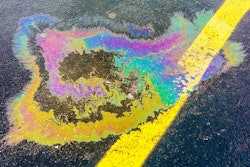Over 30 years ago I was a business consultant in Huntsville, AL, where my wife was a genuine NASA rocket scientist. In 1987 I started a newsletter called “The Supervac Quarterly” for one of my only low tech clients, the Schwarze family and their company, Schwarze Industries, Inc.
Over the next several years, during the process of producing these publications, I learned much about the power sweeping industry. In the early 1990s we moved back to my home state of Washington. By that time, I had learned enough about sweeping to realize that the majority of public works directors still swept as though they were picking up horse poop, rather than the remnants of clutch plates, brake linings and the chemicals and other nasty stuff we don’t want in our water supply.
So, I founded the first magazine for the industry, “American Sweeper,” with the intent of educating the public works sector about the need to sweep more, and more efficiently, in order to get these pollutants out of the stormwater stream. Unfortunately, mechanical broom sweepers had been found to be not all that effective in the 1980’s National Urban Runoff Protocol (NURP) testing, the only large scale sweeper testing that had happened before or, unfortunately, since... until now.
I recently learned about a University of Florida sweeper study finalized in 2019 – and which built upon data developed in 2011 – that involved sweepers, catch basins and other pollutant runoff BMPs in 14 municipalities. The astounding results make it clear there is no question street sweeping is the ‘first line of defense’ for pollutant runoff.
Street sweeping was shown to be less than 2/3 the cost of catch basins in removing a pound of nitrogen and over 11 times more cost effective than any other BMP; and, over six times cheaper than catch basins – and up to 41 times less than other BMPs – when it comes to removing phosphorus. And there’s more, much more. Everyone in the sweeping industry needs to know about this groundbreaking study. The ‘short URL’ to read the info is: https://bit.ly/2TrCxv1










![Lee Boy Facility 2025 17 Use[16]](https://img.forconstructionpros.com/mindful/acbm/workspaces/default/uploads/2025/09/leeboy-facility-2025-17-use16.AbONDzEzbV.jpg?ar=16%3A9&auto=format%2Ccompress&fit=crop&h=135&q=70&w=240)








